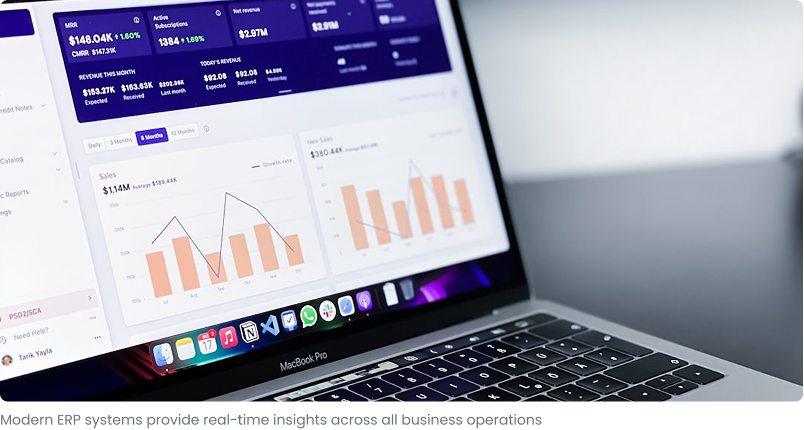Israr Ahmed
Apr 30, 2025 • 8 min read

An HR ERP module integrates essential HR functions, improving efficiency and decision-making in managing human resources
Human Resources has transformed from a simple administrative function to a strategic business partner. Today's HR departments are responsible for aligning talent with business objectives, shaping organizational culture, and driving employee development.
HR is no longer a back-office function. It’s a core part of the business that impacts almost every aspect of the company, from growth to profitability. As the landscape of work has changed, HR professionals are using advanced technologies, including Enterprise Resource Planning (ERP) systems to manage complex human resource tasks efficiently and strategically.
ERP systems are designed to integrate various business functions into a unified platform. The HR module within an ERP system provides a comprehensive solution for managing all aspects of HR, from recruitment to performance management. This document explores how ERP HR modules support HR’s strategic role in the organization and compares them with traditional HR practices and standalone HR systems.
 Fragmented data across multiple systems
Fragmented data across multiple systems Time-consuming manual processes
Time-consuming manual processes Limited real-time insights
Limited real-time insights Employee dissatisfaction with delays
Employee dissatisfaction with delays Centralized employee data management
Centralized employee data management Automated administrative workflows
Automated administrative workflows Real-time analytics and reporting
Real-time analytics and reporting Enhanced employee self-service
Enhanced employee self-serviceERP HR module provides a comprehensive suite of tools that address every aspect of human resource management, from recruitment to retirement.
Centralized employee records with real-time access and reduced data duplication
Payroll processing, leave management, and performance reviews automation
Integrated hiring process from job posting to new hire integration
Continuous tracking, goal setting, and employee development programs
Key Insight
HR ERP modules transform HR from a cost center to a strategic value driver by providing data-driven insights that support business decision-making.
The HR ERP module consists of specialized submodules, each designed to handle specific HR functions while maintaining seamless integration.
Understanding the transformation from traditional HR practices to modern ERP-integrated solutions:
| HR Function | Manual HR | HRMS/HRIS | ERP HR Module |
|---|---|---|---|
| Data Management | Paper-based records | Digital dashboard | Integrated real-time system |
| Recruitment | Manual posting | Online applicant tracking | Automated workflows |
| Time Management | Paper-based timesheets, manual leave | Digital timesheets, online leave | Integrated attendance and leave submodule |
| Payroll | Manual calculations | Automated calculations | Integrated with tax and benefits submodules |
| Performance Management | Manual reviews and goal setting | Online appraisals and goal tracking | Integrated goals and evaluations across teams |
| Reporting | Manual spreadsheets | Basic analytics | Real-time dashboards and predictive insights |
Centralized employee information gathering
Automated workflows and approvals
Data-driven decision making
The implementation of an HR ERP module transforms human resources from a traditional administrative function into a strategic business partner. By centralizing data, automating processes, and providing actionable insights, HR teams can focus on what matters most—developing talent and driving organizational success.
As businesses continue to evolve in today's dynamic environment, HR departments equipped with integrated ERP solutions are better positioned to meet challenges, support growth, and contribute to long-term organizational success.
Israr Ahmed
HR Technology Specialist at SA Systems
Israr specializes in HR technology solutions and digital transformation strategies for modern enterprises.
 ERP
ERPMarch 15, 2025
 ERP
ERPFebruary 28, 2025
.png) ERP
ERPJanuary 20, 2025
.png) Real Estate
Real EstateDecember 10, 2024